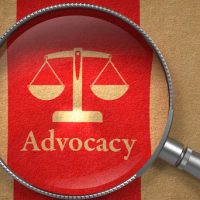Sixth Amendment Hearings

In fictional stories about criminal cases, the climactic scene usually occurs during the defendant’s trial. Statements made by the attorneys and witnesses of the prosecution and defense surprise the audience, even though they do not surprise the judge or the defendant. In real life, court dates other than the trial have just as big an impact on the outcome of the case. These can occur before or after the trial. For example, you can file a motion to suppress a piece of evidence on the grounds that the police gathered the evidence in violation of your Fourth Amendment rights, such as by searching your property without a warrant; if you prevail in this hearing, it can improve your chances of getting acquitted at trial, or it might even persuade the court to drop the charges against you, since without the illegally obtained evidence, the prosecution cannot convincingly argue that you are guilty of the charges. Other types of hearings can decide matters related to the Sixth Amendment, which guarantees defendants the right to a fair trial. Here, our Miami criminal defense lawyer explains Richardson hearings, Nelson hearings, and Faretta hearings and how they relate to your Sixth Amendment rights.
Richardson Hearings and the Defendant’s Rights During Pretrial Discovery
Every criminal case that goes to trial involves pretrial discovery, where each party notifies the other about the evidence they plan to present at trial. This way, you have an opportunity to think of reasons that the prosecution’s evidence does not indicate your guilt, and if applicable, to draw attention to these arguments through the questions that you ask the prosecution’s witnesses during cross examination. Violations of pretrial discovery often involve late disclosure or non-disclosure of evidence or witnesses, depriving the other side of the opportunity to decide in advance how to address this evidence or witness testimony at trial.
Richardson hearings take their name from the Florida Supreme Court decision Richardson v. Florida. The decision stated that, when the prosecution or defense notifies the judge that the other party has violated the pretrial discovery process, the court must hold a hearing to determine what the consequences of the violation of pretrial discovery will be. It might result in the trial being postponed, the court declaring the relevant piece of evidence inadmissible, or even the court dismissing the case.
Nelson Hearings and Ineffective Assistance of Counsel
Nelson hearings occur when a defendant who is being represented by a court-appointed attorney from the public defender’s office requests to have the court remove the lawyer from the defendant’s case. To persuade the court to remove the lawyer from the case, the defendant must persuade the judge that the lawyer is providing ineffective assistance of counsel. This is a tall order, considering that the ineffective assistance of counsel argument only works when the lawyer has made a major error such as not noticing that the charges counted as double jeopardy or defending the defendant against charges other than the ones the defendant is facing. The courts have ruled that memory-impaired and chronically drunk lawyers provided sufficient counsel that their representation of the defendant did not amount to ineffective assistance of counsel.
The reason for Nelson hearings is for courts to decide when a public defender is truly not doing his or her job, versus when the defendant is simply complaining about the public defender because they don’t get along or because the public defender cannot miraculously make the defendant’s criminal charges, or the evidence pointing to them, disappear. If the court removes the public defender from the client’s case pursuant to a Nelson hearing, the court has no obligation to appoint another lawyer to represent the defendant.
Faretta Hearings and Self-Representation by Defendants in Criminal Cases
In most legal matters, litigants can choose to represent themselves or to hire lawyers, but representation by a criminal defense lawyer is a basic right of defendants in criminal cases. If defendants cannot afford to hire their own lawyers, the court will assign a public defender to represent them. If a defendant wants to represent himself or herself in a criminal case, the defendant must prove that self-representation would be in the interest of justice. This involves a Faretta hearing, in which the judge decides whether the defendant is competent to represent himself or herself in court.
Contact Our Criminal Defense Attorneys
A South Florida criminal defense lawyer can help you seek justice if you want to request a hearing before or after your trial. Contact Ratzan & Faccidomo in Miami, Florida for a confidential consultation about your case.
Source:
1dca.flcourts.gov/content/download/2447864/opinion/Opinion_2022-1163.pdf
